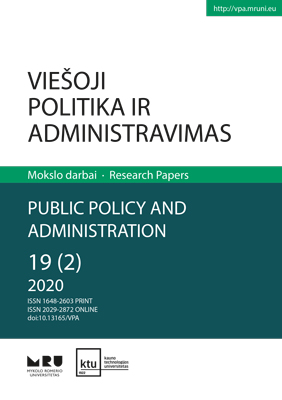COLLABORATION BETWEEN GOVERNMENT AND AGRIBUSINESS FOR BIOGAS PRODUCTION: BALANCED DEVELOPMENT OF RURAL SUSTAINABILITY
COLLABORATION BETWEEN GOVERNMENT AND AGRIBUSINESS FOR BIOGAS PRODUCTION: BALANCED DEVELOPMENT OF RURAL SUSTAINABILITY
Author(s): Rita Vilkė, Živilė Gedminaitė-RaudonėSubject(s): Agriculture, Public Administration
Published by: Mykolas Romeris University
Keywords: collaboration; sustainable rural development; government; farmers; circular bioeconomy; biogas production;
Summary/Abstract: Throughout the last half a century, rural development policy has experienced many transformations in the name of industrialization, including the mechanization of work process in agriculture, the installation of irrigation and amelioration systems, the electrification of farms, the application of chemical production technologies, increased productivity, and a myriad of other developments. Present questions of balanced sustainability and the minimization of negative impacts with regard to quality of life are taking leading positions in agricultural policy debates. The results of previously implemented agribusiness support measures are beginning to signal a disastrous future for ongoing agricultural policy, which has over accelerated rural development and thus caused significant changes in rural landscapes and the lives of rural residents. Therefore, future agriculture requires new models and innovative decisions, as well as good political will in the field. The main aim of this paper is to propose future directions for collaboration between government and agribusinesses using an innovative circular bio-economy economy approach for attaining the balanced development of rural sustainability. Qualitative data were collected in summer and autumn of 2018 using semi-structured interviews in Lithuanian livestock farms and government institutions. These are the key players in biogas production, as from one side they act as biogas producers (livestock farms) and from the other act as actual decision-makers (government institutions). The results of the research demonstrate that future agribusiness is highly dependent on the role taken by government in accelerating prospective innovations, even though they happen in a field of activity that is supported by public funds. Collaborative political decisions made to support the circular bio-economy economy approach in biogas production might be helpful for the future development of livestock agribusiness that is less polluting and of more benefit to society. It is suggested to broaden the use of the circular bio-economy economy approach in fostering the balanced development of rural sustainability in the European Union’s Common Agricultural Policy after 2020.
Journal: Viešoji politika ir administravimas
- Issue Year: 19/2020
- Issue No: 2
- Page Range: 298-313
- Page Count: 16
- Language: English

